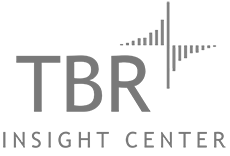Rackspace Technology: Becoming elastic as the ‘un-GSI’
Rackspace Technology unveils new high-touch services framework, strengthening its play in managed public cloud
In April 2021, to assert itself in the managed public cloud space, Rackspace Technology unveiled its Rackspace Elastic Engineering framework, which promises a more scalable approach to the multicloud engagement life cycle compared to standard managed services contracts. The framework provides on-demand access to pools of cloud engineers, architects and engagement managers, dubbed “pods,” that will support customers from the advisory and consulting stage to system provisioning and management. Aligned to nine dedicated specialists, each pod acts as a landing spot for customers that they will constantly engage with to achieve goals post-migration.
Rackspace Technology supports its Rackspace Elastic Engineering offering with the message: “It’s no longer enough to just be in the cloud.” While many customers will initially leverage Rackspace Technology for its vendor-neutral approach to address cloud migration requests, the pod framework is designed to support customers’ cloud-native projects, which has the potential to improve Rackspace Technology’s value-add with support for emerging technologies such as serverless functions, automation and Infrastructure as Code.
The new Rackspace Technology offering supports AWS, Microsoft Azure and Google Cloud, which addresses the growing trend of customers adopting multiple cloud platforms to support specific workloads. TBR notes many cloud service providers (CSPs) are looking to address multicloud management pain points, either with professional services or self-service solutions. TBR expects that the Rackspace Technology platform-neutral approach, combined with a customer-centric approach to cloud transformation, will help the company assert itself in the managed cloud space to increasingly capture more market share away from its technology to services-centric competitors.
With both managed services and dedicated hosting capabilities, Rackspace Technology strives to become the ‘best place to run VMware’
While Rackspace Technology has been a longtime partner of VMware, offering hosting and managed services support for core virtualization offerings, VMware’s rapid shift to the cloud has presented new opportunities for IaaS players and global systems integrators (GSIs). To make it easier for customers to move VMware outside the data center, hyperscalers are allying with VMware to deliver the VMware Cloud Foundation (VCF) platform — which comprises vSphere, NSX and vSAN — on dedicated or multitenant cloud infrastructure. TBR notes VMware has traditionally been less reliant on SI partners, but we expect the company to outsource VMware Cloud management tasks more heavily through 2021 as the portfolio continues to grow, due in part to its recent multiyear, multimillion-dollar partnership agreement with Accenture.
As a result of these dynamics, Rackspace Technology’s private cloud strategy was one of the main highlights conveyed with its launch of Rackspace Services for VMware Cloud. In addition to supporting various hosting methods, including on premises via consumption-based pricing, in Rackspace Technology data centers or through a colocation provider, the addition of Rackspace Services for VMware Cloud supports VMware clients from the services angle. As complexity and lack of in-house resources are among the leading customer concerns surrounding VMware migrations, Rackspace Technology is applying its Rackspace Elastic Engineering framework to support a number of use cases, from lift and shift to application refactoring.
Prior to going public again in August 2020, Rackspace Technology (Nasdaq: RXT) underwent a major strategic pivot, placing less emphasis on the capital-intensive data-hosting model it has been historically known for and shifting its investments to build a resource base within cloud professional services. With the announcements of Rackspace Elastic Engineering and Rackspace Services for VMware Cloud in April and May 2021, the company is competing in the managed cloud space with a new high-touch services framework designed to support enterprise clients at all layers of the cloud stack, from infrastructure management to application modernization. Rackspace Technology’s long-standing technology alliances with Amazon Web Services (AWS) (Nasdaq: AMZN), Microsoft (Nasdaq: MSFT), Google Cloud (Nasdaq: GOOGL) and VMware (NYSE: VMW); ability to host clients’ enterprise workloads in a dedicated cloud; and well-established Fanatical Experience brand are among the ways the company will not only seek differentiation and position itself as an alternative to peers but also establish itself as an “un-GSI.”




Leave a Reply
Want to join the discussion?Feel free to contribute!